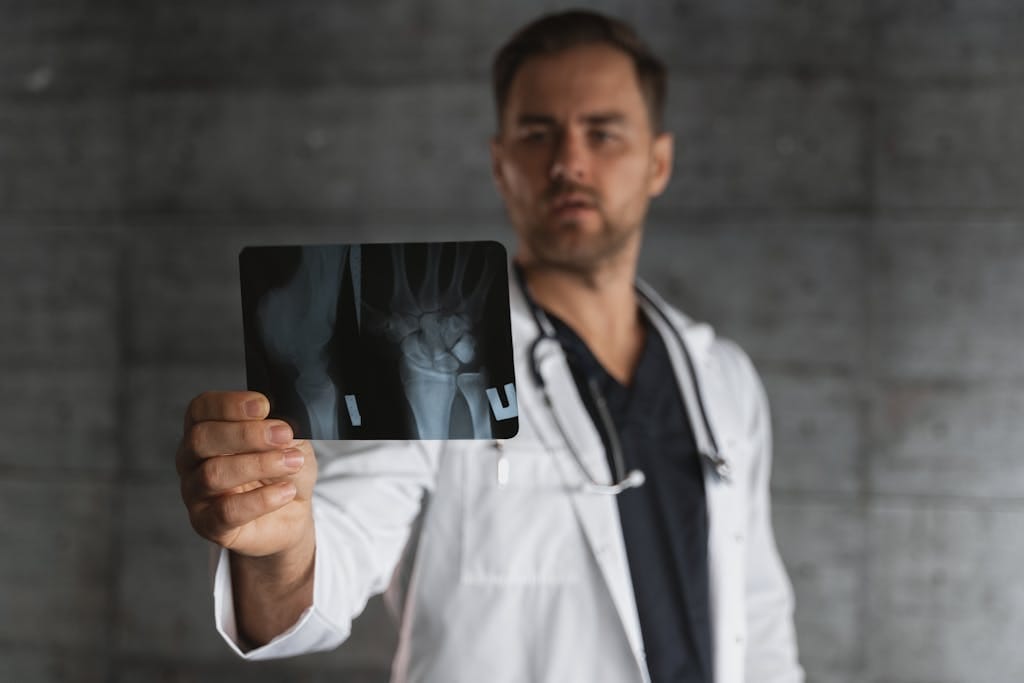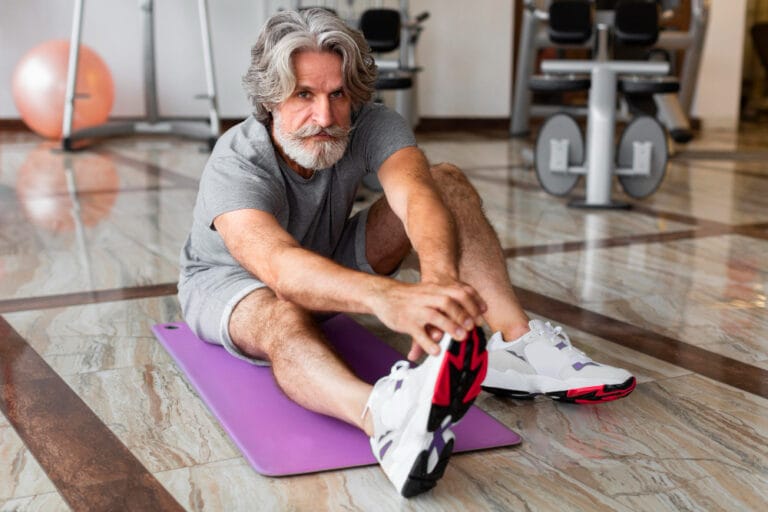FREE SHIPPING OVER $50
Your Bones Get Weaker After 40—Here’s How to Stop (and Reverse) It, According to Experts
Bone loss doesn’t happen overnight, but once you hit your 40s, it begins to accelerate quietly. You may not notice it until you feel weaker, experience joint pain, or worse—suffer a fracture. The good news? It’s not only possible to slow down age-related bone loss, but experts say you can actually reverse it with the right habits.
This guide breaks down what really happens to your bones after 40 and exactly what to do about it—from the foods you eat to the exercises you should prioritize.
Why Bones Get Weaker After 40

Once you reach your mid-30s, your bone mass starts to decline gradually. For women, this process accelerates during perimenopause and menopause due to a drop in estrogen, a hormone that plays a major role in bone maintenance. For men, testosterone decline can have a similar, though slower, impact.
By the time you’re in your 40s and 50s, your body breaks down more bone than it builds. This leads to lower bone density, increased risk of osteoporosis, and higher susceptibility to fractures.
Other contributing factors include:
- Sedentary lifestyle
- Vitamin D deficiency
- Poor calcium intake
- Chronic inflammation
- Smoking or excessive alcohol use
So how do you stop or even reverse this process?
1. Lift Heavy (Safely): Resistance Training Stimulates Bone Growth
Weight-bearing exercise is one of the most powerful ways to maintain and build bone density. Resistance training puts controlled stress on your bones, which signals your body to increase bone formation.
You don’t need to be a powerlifter. Bodyweight exercises like squats and pushups, or light dumbbell work, can be incredibly effective when done consistently.
Focus on:
- 2–3 sessions of strength training per week
- Compound movements (squats, deadlifts, lunges, rows)
- Progressive overload (increasing resistance over time)
2. Prioritize Protein: Fuel Bone Remodeling With the Right Nutrients
Protein isn’t just for building muscle—it’s crucial for bone health. Bones are made of collagen, which is a protein matrix that minerals like calcium bind to. Without enough protein, your bones can become brittle.
Aim for:
- 0.8 to 1 gram of protein per pound of body weight
- High-quality sources like lean meats, dairy, eggs, beans, and legumes
- Collagen-rich foods or supplements (bone broth, collagen peptides)
3. Get Smart About Calcium: Timing and Absorption Matter
Calcium is vital, but popping a supplement once a day isn’t enough. Your body can only absorb so much calcium at a time, and it needs other nutrients—especially vitamin D and magnesium—to use it effectively.
Do this instead:
- Get calcium from whole foods: leafy greens, sardines, yogurt, tofu
- Divide your intake: aim for 500–600mg at a time
- Avoid taking calcium with high-iron meals, which can reduce absorption
4. Boost Vitamin D: Without It, Calcium Goes to Waste
Vitamin D helps your body absorb calcium from food and regulate bone turnover. Low levels of vitamin D are shockingly common, especially if you live in colder climates or spend most of your time indoors.
To optimize your levels:
- Get your vitamin D tested at your next physical
- Spend 15–30 minutes in sunlight daily (arms and legs exposed)
- Supplement with D3 if your levels are below 30 ng/mL
5. Incorporate Balance and Impact Training: Prevent Falls Before They Happen
Bone strength is crucial, but so is preventing the falls that cause fractures. Exercises that improve balance and coordination can reduce your risk of falling, especially as you get older.
Effective options include:
- Tai chi or yoga
- Balance board drills
- Single-leg movements like step-ups or toe taps
Additionally, light impact exercises like jumping rope, skipping, or light jogging help stimulate bone remodeling in the hips and spine—areas most prone to fractures.
6. Rethink Your Drink: Cut Back on Alcohol and Caffeine
Too much alcohol can interfere with calcium absorption and reduce bone formation. Excessive caffeine may also leach calcium from your bones if your diet is already lacking.
Keep it in check:
- Limit alcohol to 1 drink per day for women, 2 for men
- Keep caffeine under 300mg per day (about 2–3 cups of coffee)
- Hydrate with mineral-rich water to support electrolyte and bone health
7. Support Gut Health: Your Microbiome Affects Nutrient Absorption
Your gut is where nutrients like calcium, magnesium, and vitamin K2 are absorbed—so if it’s inflamed or imbalanced, your bones might not get what they need.
Promote healthy digestion with:
- Fermented foods (yogurt, kefir, sauerkraut)
- A high-fiber diet (vegetables, whole grains, legumes)
- Probiotic or prebiotic supplements, if recommended by your doctor
8. Don’t Ignore Vitamin K2: It Tells Calcium Where to Go
Vitamin K2 helps shuttle calcium into your bones and teeth instead of your arteries. This is especially important if you’re taking calcium or vitamin D supplements.
Best sources include:
- Natto (fermented soybeans)
- Hard cheeses
- Egg yolks, chicken thighs, liver
- K2 supplements in MK-7 form for better bioavailability
9. Sleep More: Bone Regeneration Happens Overnight
Sleep is when your body regenerates and repairs tissue—including bones. Chronic sleep deprivation increases cortisol, which can accelerate bone breakdown.
Aim for:
- 7–9 hours of quality sleep per night
- Consistent bedtime and wake-up times
- A cool, dark sleep environment to improve melatonin (which also supports bone health)
10. Manage Inflammation and Stress: Cortisol Weakens Bones
High stress levels increase cortisol, a hormone that can interfere with bone-building processes. Chronic inflammation also reduces your ability to absorb nutrients critical for bone health.
Combat inflammation with:
- Anti-inflammatory diet (rich in omega-3s, colorful vegetables, healthy fats)
- Stress management techniques like deep breathing, journaling, and walking
- Reducing sugar and ultra-processed foods
Conclusion
Your 40s and beyond don’t have to mean brittle bones and fracture fears. By adopting a few key daily habits—lifting weights, eating right, getting sunlight, and managing stress—you can protect your bone density and even reverse early signs of decline.
The sooner you start, the stronger you stay. So make your bones a priority now
Related Articles
- Science Says These 10 Daily Rules Can Help You Lose 30 Pounds Without Starving
- These 5 Physical Therapist-Approved Exercises Fixed 95% of My Aches—Now I Do Them Every Day
- Build Serious Muscle & Strength With Just 4 Lifts—This 3-Day Program Is All You Need
- Think You Don’t Have Time to Strength Train? You’ll Want to See This
- Most Gym-Goers Do These Triceps Moves Wrong—Here’s the Smarter Way to Train







